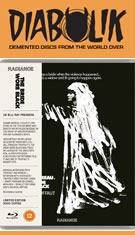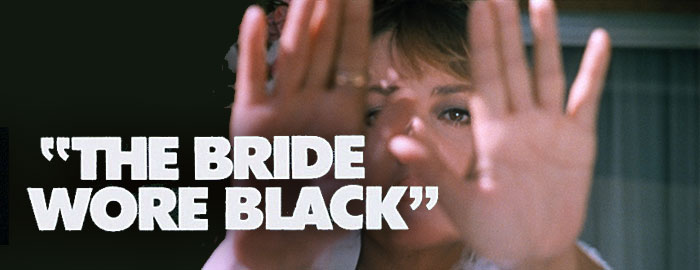Color, 1968, 107 mins. 36 secs.
Directed by François Truffaut
Starring Jeanne Moreau, Jean-Claude Brialy, Michel Bouquet, Charles Denner, Michel Lonsdale, Claude Rich, Daniel Boulanger, Alexandra Stewart
Radiance Films (Blu-ray) (UK RB HD), Kino Lorber (Blu-ray) (US RA HD), Twilight Time (Blu-ray) (US RA HD) / WS (1.66:1) (16:9), MGM (DVD) (US R1 NTSC) / WS (1.66:1) (16:9)
In the wake of his 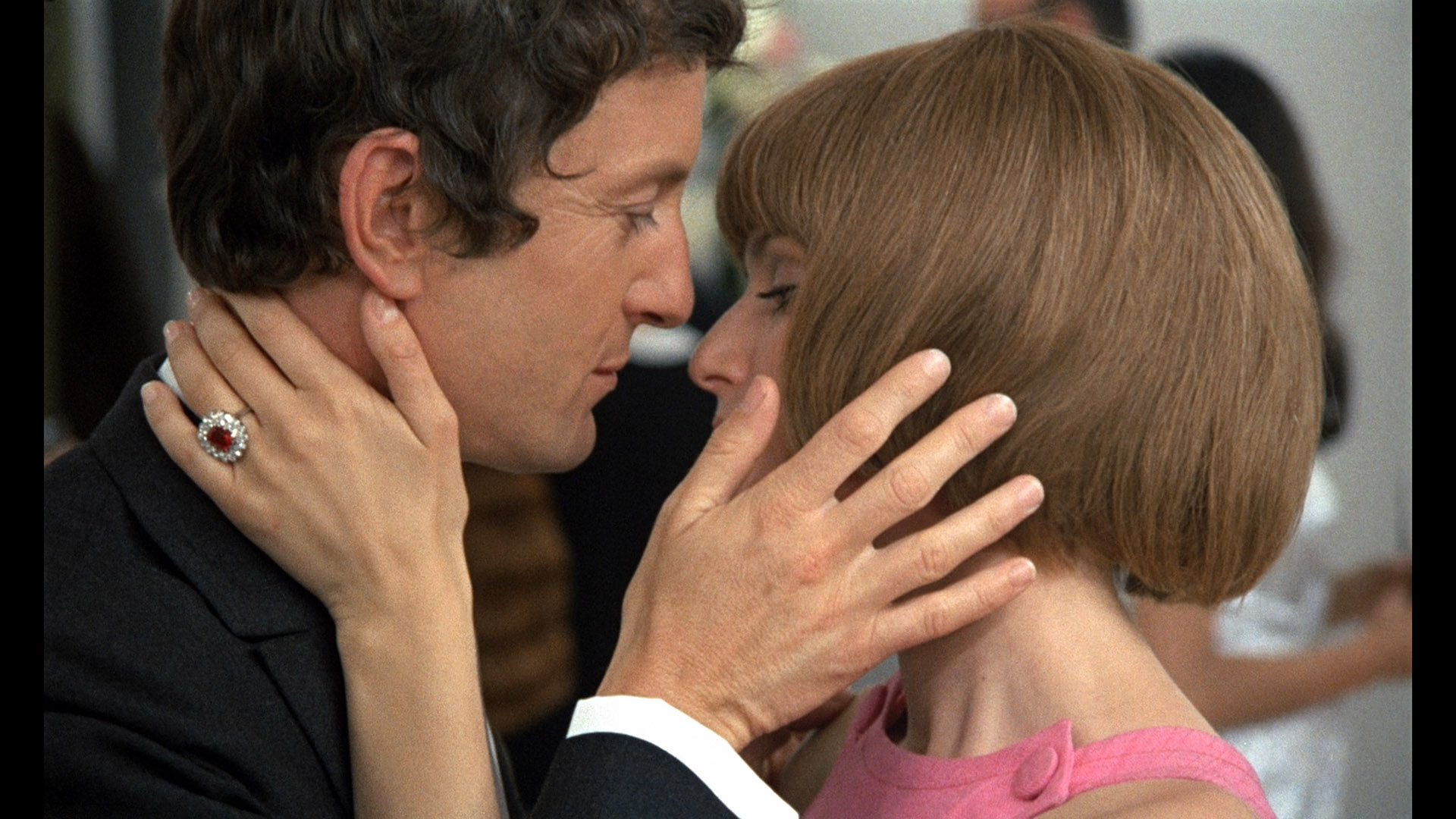 groundbreaking interview sessions with Alfred Hitchcock that became the book Hitchcock/Truffaut, filmmaker François
groundbreaking interview sessions with Alfred Hitchcock that became the book Hitchcock/Truffaut, filmmaker François 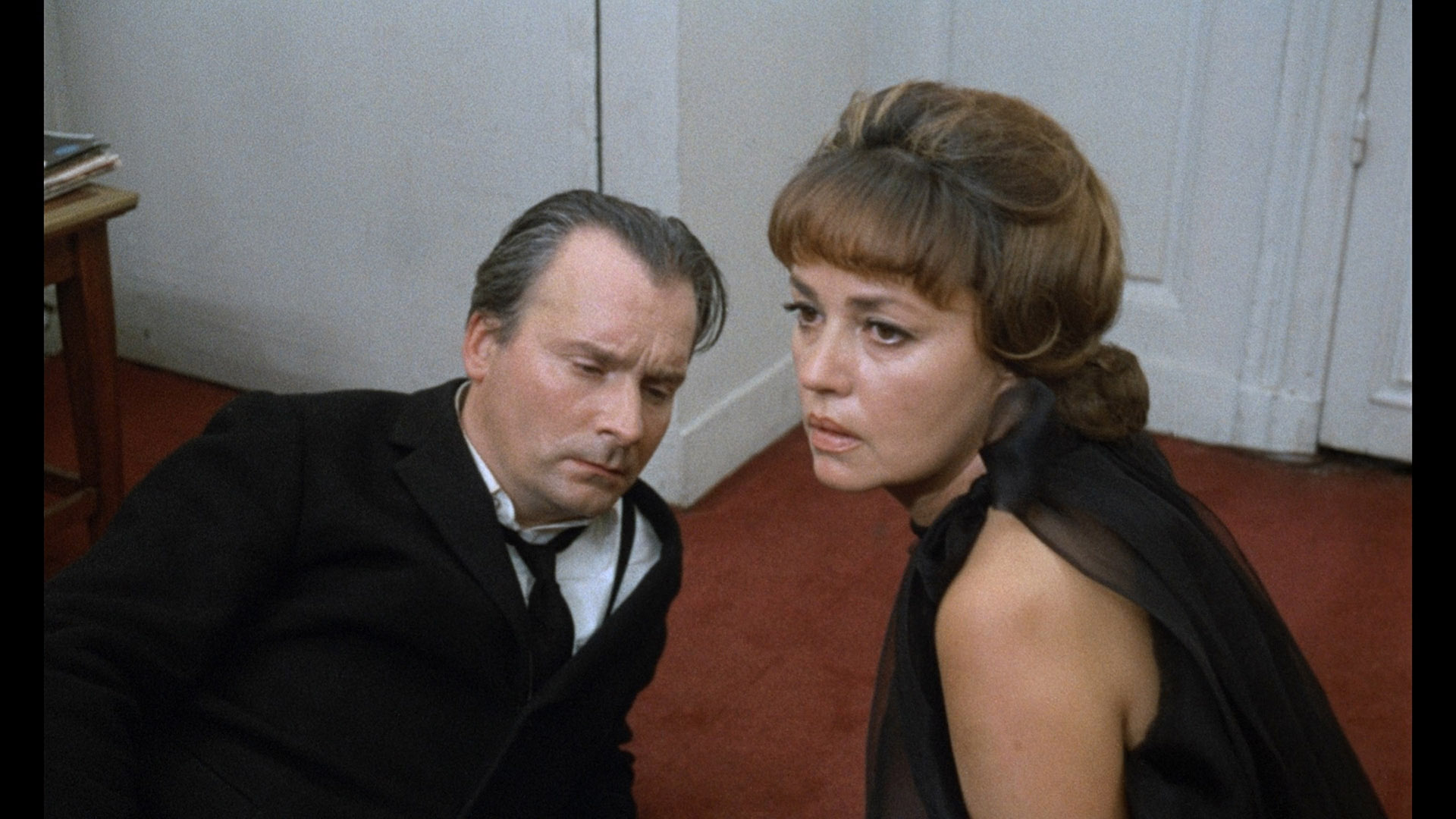 Truffaut bounced back from the very rocky experience of his only English-language studio film, Fahrenheit 451, by embracing the visual techniques and storytelling tactics of the Master of Suspense on and off for the rest of his career. The first and most beloved of these thrillers is The Bride Wore Black, an adaptation of a 1940 novel by Cornell Woolrich (a.k.a. "William Irish," whom Hitch had loosely adapted for Rear Window, not to mention multiple episodes of Alfred Hitchcock Presents). Now also known for its strong structural similarities to Quentin Tarantino's Kill Bill diptych (and for inspiring Kate Bush's song "The Wedding List"), Truffaut's film carried the homage far enough to utilize Hitch's most famous composer, Bernard Herrmann, who had already composed Fahrenheit 451 and had undergone an infamous falling out with Hitchcock over Torn Curtain.
Truffaut bounced back from the very rocky experience of his only English-language studio film, Fahrenheit 451, by embracing the visual techniques and storytelling tactics of the Master of Suspense on and off for the rest of his career. The first and most beloved of these thrillers is The Bride Wore Black, an adaptation of a 1940 novel by Cornell Woolrich (a.k.a. "William Irish," whom Hitch had loosely adapted for Rear Window, not to mention multiple episodes of Alfred Hitchcock Presents). Now also known for its strong structural similarities to Quentin Tarantino's Kill Bill diptych (and for inspiring Kate Bush's song "The Wedding List"), Truffaut's film carried the homage far enough to utilize Hitch's most famous composer, Bernard Herrmann, who had already composed Fahrenheit 451 and had undergone an infamous falling out with Hitchcock over Torn Curtain.
While preparing for his upcoming wedding, a lothario named Bliss (Rich) decides to hit on a woman at a party who, by asking him to fetch her scarf after it flies off a balcony, ends up pushing him to his death. At that moment she reveals her identity: Julie Kohler (Moreau), whose husband and childhood sweetheart was shot dead on the church steps coming out of their wedding. Now bent on single-minded payback, she has a kill list prepared for the rest of the men she blames for the death including classic music buff Coral (Bouquet), family man and small town politician Morane (Lonsdale), amateur hunter and gun nut Delvaux (Boulanger), and painter Fergus (Denner). Julie assumes different identities and personalities to suit her targets, though the execution 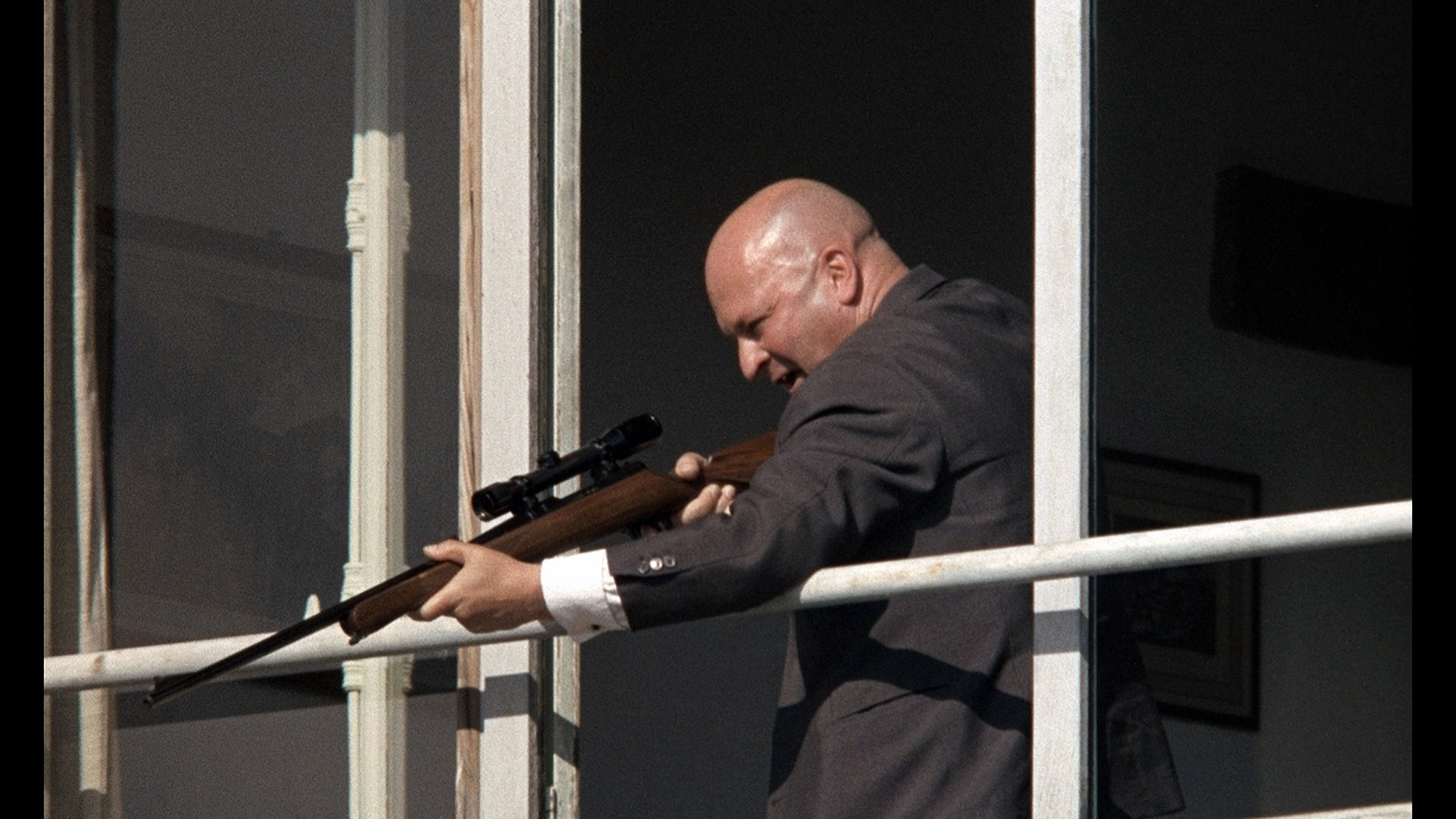 of her scheme takes several unexpected turns along
of her scheme takes several unexpected turns along 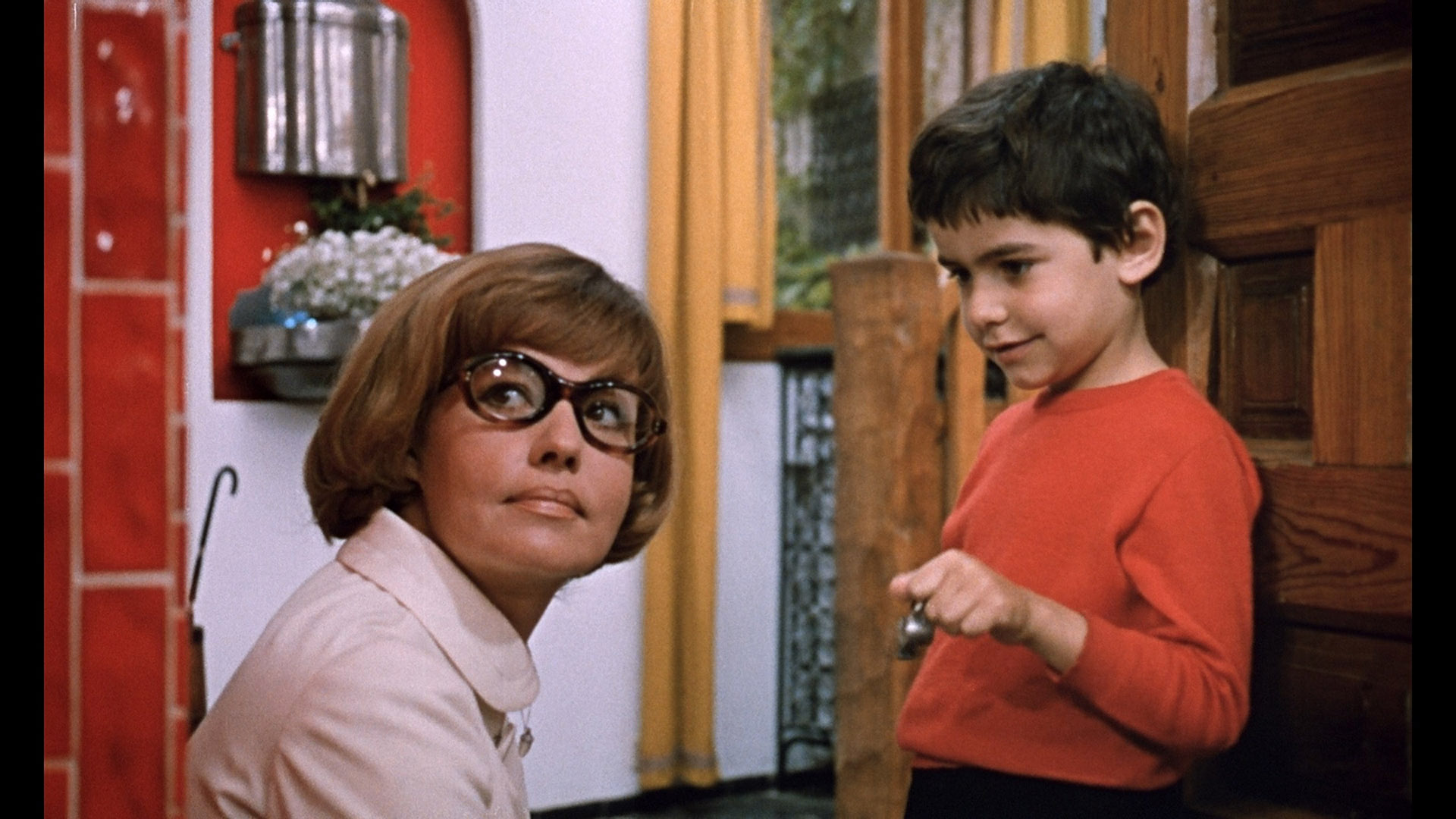 the way.
the way.
For some reason French critics were less than kind to this film when it came out amidst a glut of excellent 1968 thrillers (including two from Claude Chabrol, and even Truffaut publicly badmouthed it on more than one occasion. However, that didn't stop him from tackling Cornell Woolrich again the following year with Mississippi Mermaid, and this film has maintained a substantial cult following over the years thanks to its strange, fatalistic tone and Moreau's excellent lead performance. Interestingly, the film completely ditches the source novel's twist ending and comes up with a clever and satisfying last-minute stinger of its own, while the individual murder plot sequences provide a solid showcase for a variety of familiar faces from the French New Wave. Though it never got the critical respect of Truffaut's Antoine Doinel series or Day for Night, this one became a frequent repertory favorite well into the '90s and had frequent exposure on Cinemax for years during daytime airings (either dubbed or subtitled), ultimately helping to build new Truffaut fans regardless of what its auteur thought about the end result.
Like the rest of Truffaut's subsequent United Artists releases, The Bride Wore Black became part of the MGM catalog and hit DVD in 2001 in a 1.66:1 non-anamorphic presentation (since the studio's home video division weirdly refused to do 16x9 transfers for anything narrower than 1.85:1 for many years). In 2015 the film made its Blu-ray debut from Twilight Time along with two other Truffaut titles, Mississippi Mermaid and The Story of Adele H, all of which were supplied as HD scans from MGM with ugly burned-in subtitles (indicating they were originally created for broadcast use). The Twilight Time disc also included the dubbed version of the film as a separate encode, plus the trailer, an isolated music and effects track, and a solid commentary by Julie Kirgo, Steven C. Smith, and the late Nick Redman focusing on late '60s Truffaut and especially Bernard Herrmann. A bonus CD was also included featuring "Conversation Piece: An Unvarnished Chat with Bernard Herrmann" featuring the 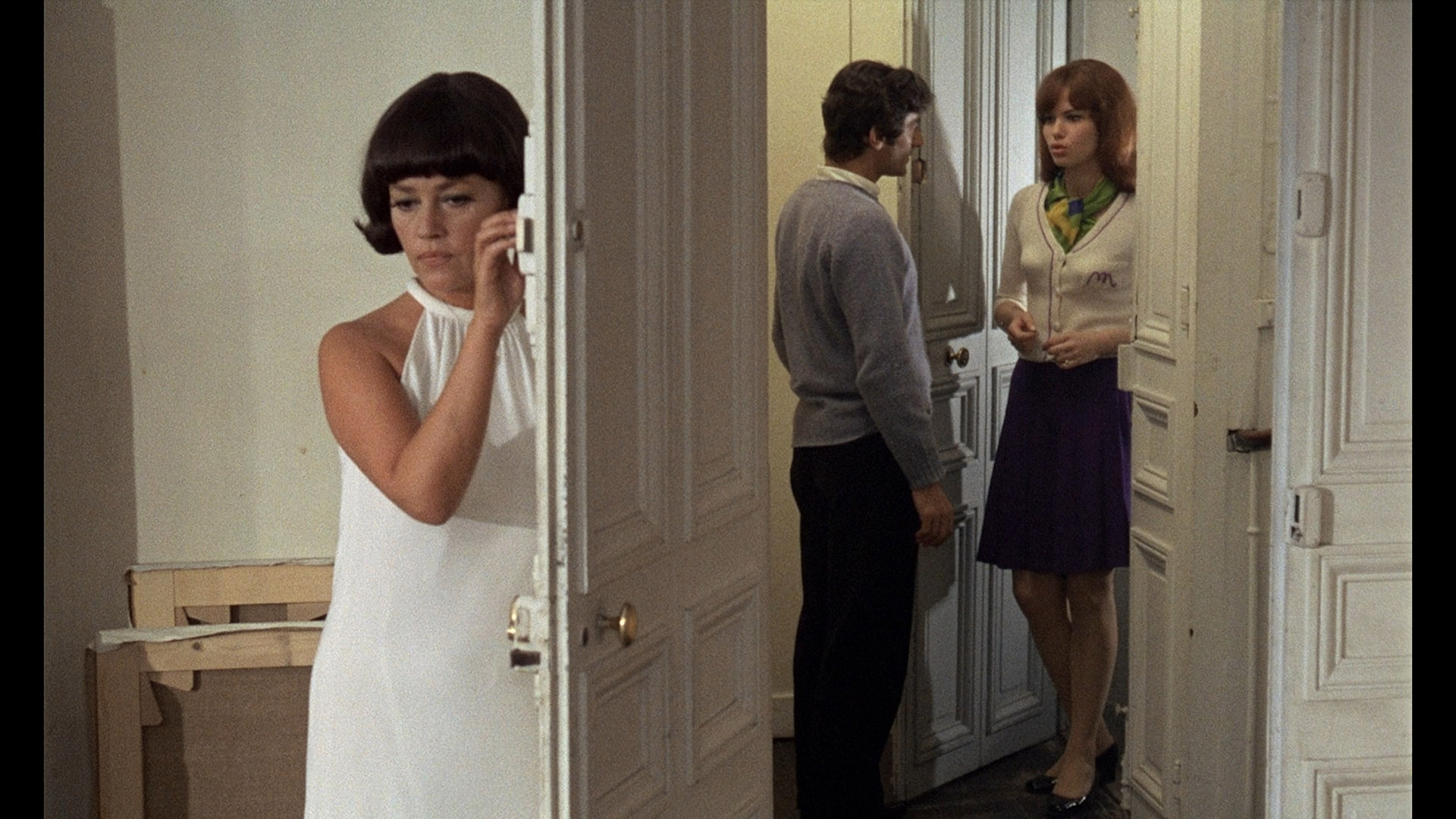 notoriously caustic talking about his musical methods and overall career.
notoriously caustic talking about his musical methods and overall career. 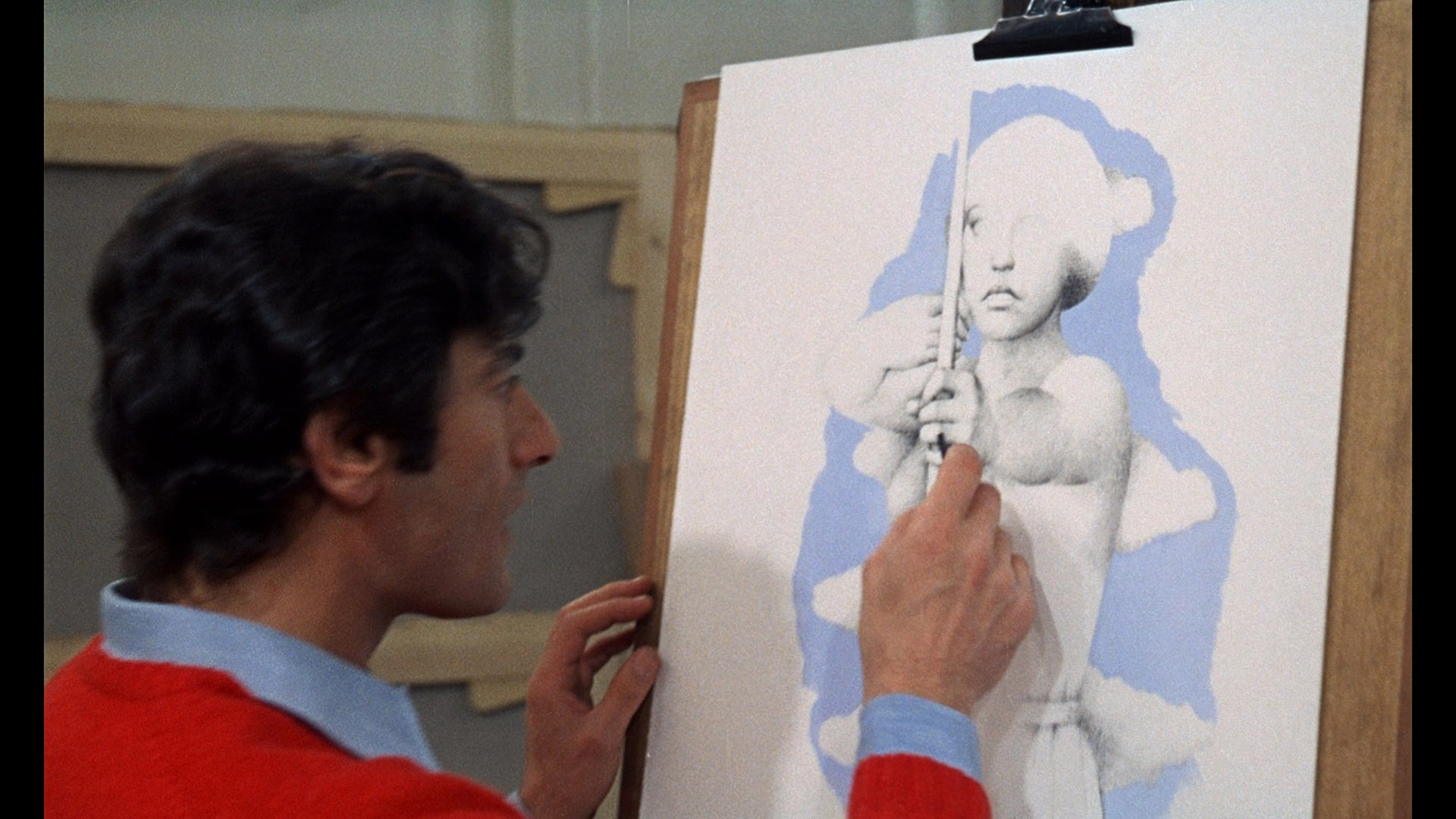 In early 2023, Kino Lorber reissued the film on U.S. Blu-ray thankfully featuring optional English subtitles, reason enough to inspire an upgrade, along with porting over the trailer and audio commentary. (They also released standalone editions of the other two Twilight Time Truffauts, plus a much-needed set featuring the HD stateside debuts of Small Change, The Green Room, The Wild Child, and The Man Who Loved Women.)
In early 2023, Kino Lorber reissued the film on U.S. Blu-ray thankfully featuring optional English subtitles, reason enough to inspire an upgrade, along with porting over the trailer and audio commentary. (They also released standalone editions of the other two Twilight Time Truffauts, plus a much-needed set featuring the HD stateside debuts of Small Change, The Green Room, The Wild Child, and The Man Who Loved Women.)
A bit later the same year, Radiance Films released an expanded Region B special edition Blu-ray from the same solid MGM scan; while the Twilight Time suffered from compressing two versions of the film onto one disc, these new reissues are comparable in quality and both look satisfying. (Interestingly though, the English dub hasn't been seen since the Twilight Time though that's a minor loss.) Here you get an LPCM French 1.0 mono track (versus the DTS-HD MA French 2.0 mono of the U.S.) with optional English subtitles, and it sounds excellent either way. The multiple video extras kick off with a Truffaut interview from 1968 for the TV show À vous de juger (11m37s) talking about his admiration of the source novel, his tactics for playing around with the mechanical structure, the changes he made to the adaptation, the influence of American cinema and Jean Renoir, and his opinions of the central characters. Then Moreau appears on a 1969 episode of L'invité du dimanche (4m41s) to talk about her work ethic and thoughts on the Truffaut method of creating a team environment on set. A new 15m31s 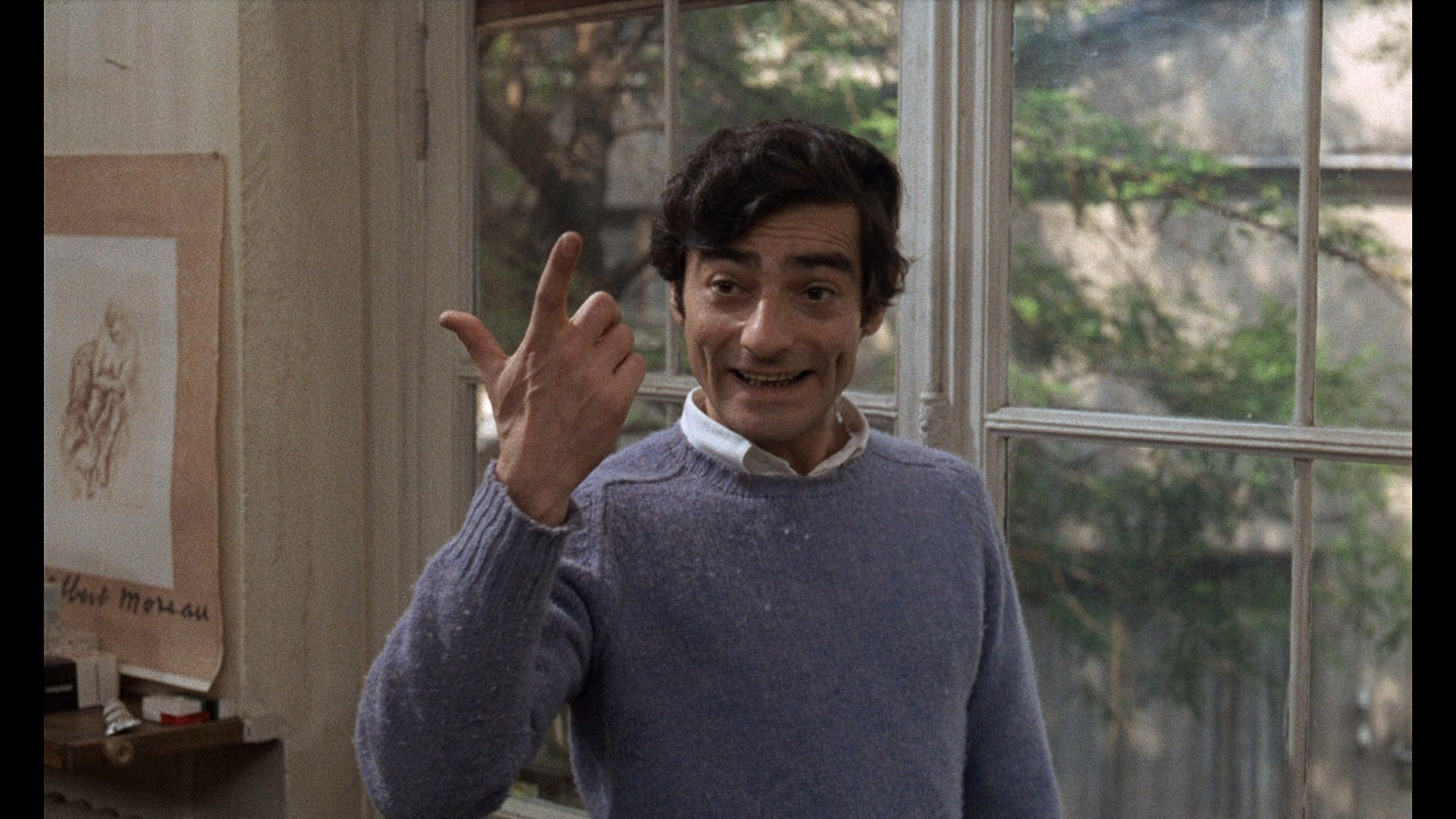 video
video 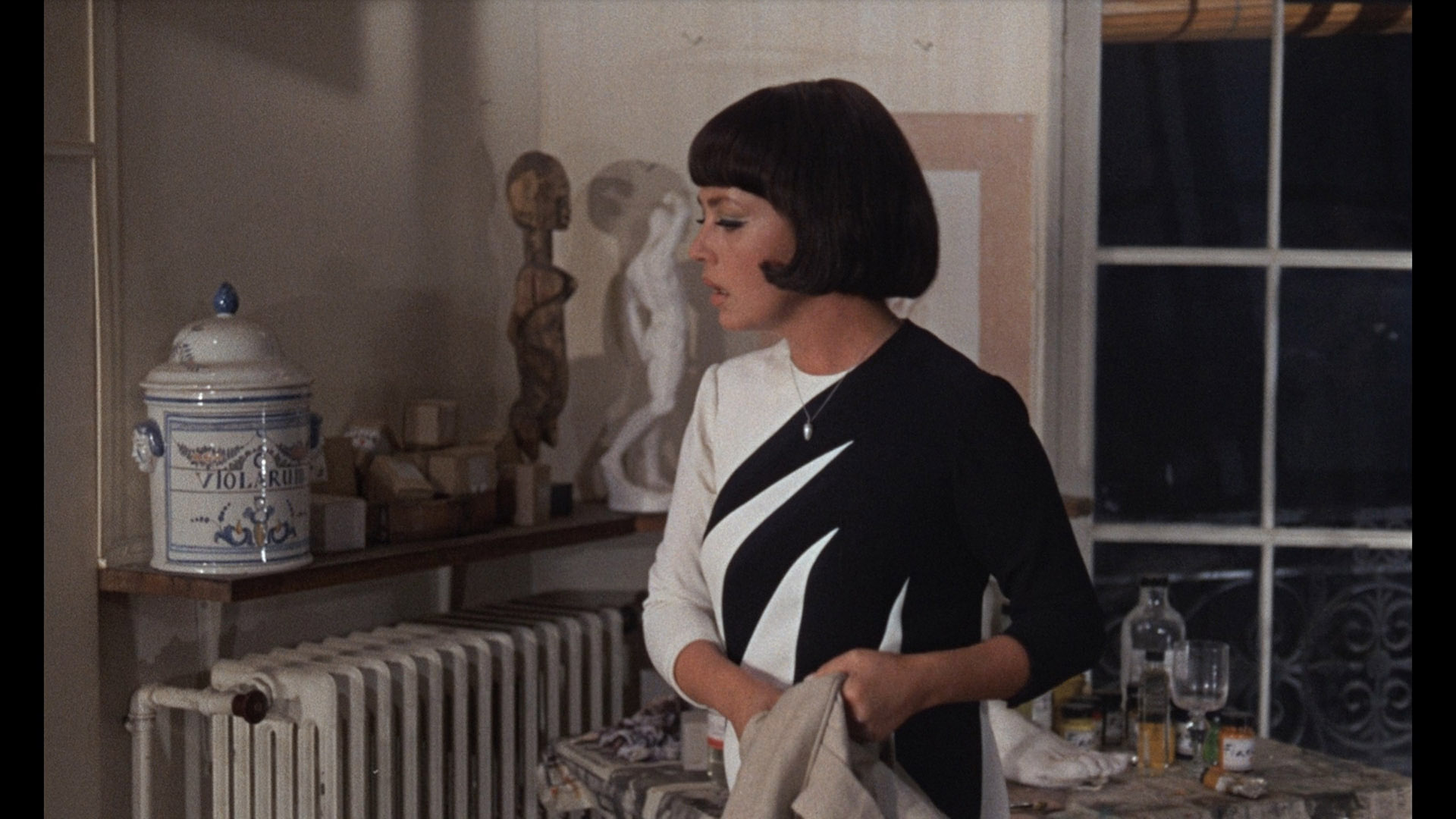 appreciation by filmmaker Kent Jones (who turned Hitchcock/Truffaut into a documentary) covers the background of the film including its financial intentions, Truffaut's desire to work with Moreau again after Jules and Jim, the conflicts on the set with regular cinematographer Raoul Coutard, the recurring theme of relations between men and women, and his disdain for the "cheesy" source novel. Then Barry Forshaw provides an 8m51s look at Woolrich and the film's function as an adaptation, including context for the tortured author's esteem among pulp writers and readers as well as the various shifting and tweaking made to the book to bring it to the screen. A very welcome bonus here is 1967's Les surmenes ("The Overworked") (24m37s), a short film by Jacques Doniol-Valcroze co-written by Truffaut and featuring early roles for French New Wave staples Jean-Claude Brialy and Jean-Pierre Cassel (plus a nice jazzy score by the great Georges Delerue). Starting off as a documentary-style look at the hubbub of modern working life, it eventually settles into a portrait of Catherine, a commuting secretary driven to the brink of exhaustion due to her social and professional encounters with a variety of men. The HD presentation of the short looks immaculate here and features optional English subtitles. The usual trailer is included here as well, while the package comes with a limited edition booklet featuring a new essay by Emmanuel Burdeau, archival writing by Truffaut and Moreau, and an archival article by Penelope Houston.
appreciation by filmmaker Kent Jones (who turned Hitchcock/Truffaut into a documentary) covers the background of the film including its financial intentions, Truffaut's desire to work with Moreau again after Jules and Jim, the conflicts on the set with regular cinematographer Raoul Coutard, the recurring theme of relations between men and women, and his disdain for the "cheesy" source novel. Then Barry Forshaw provides an 8m51s look at Woolrich and the film's function as an adaptation, including context for the tortured author's esteem among pulp writers and readers as well as the various shifting and tweaking made to the book to bring it to the screen. A very welcome bonus here is 1967's Les surmenes ("The Overworked") (24m37s), a short film by Jacques Doniol-Valcroze co-written by Truffaut and featuring early roles for French New Wave staples Jean-Claude Brialy and Jean-Pierre Cassel (plus a nice jazzy score by the great Georges Delerue). Starting off as a documentary-style look at the hubbub of modern working life, it eventually settles into a portrait of Catherine, a commuting secretary driven to the brink of exhaustion due to her social and professional encounters with a variety of men. The HD presentation of the short looks immaculate here and features optional English subtitles. The usual trailer is included here as well, while the package comes with a limited edition booklet featuring a new essay by Emmanuel Burdeau, archival writing by Truffaut and Moreau, and an archival article by Penelope Houston.
Reviewed on May 22, 2023.
![]()
